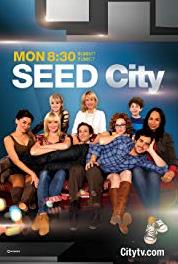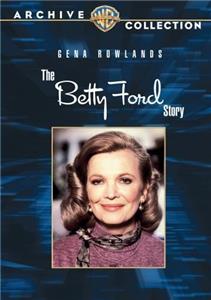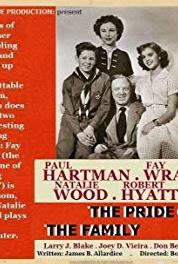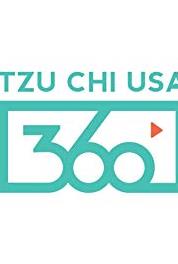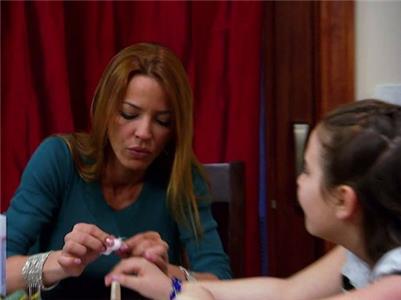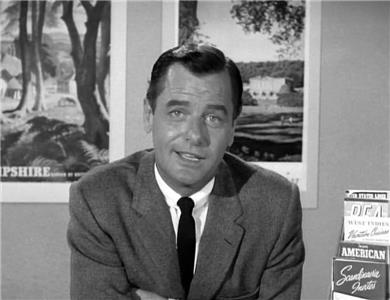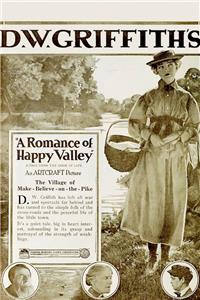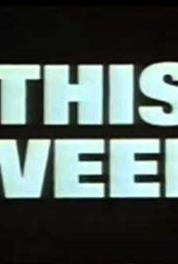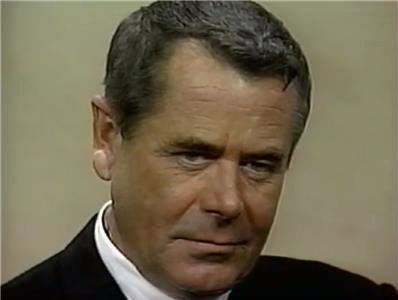Ford Star Jubilee This Happy Breed (1955–1956) Online
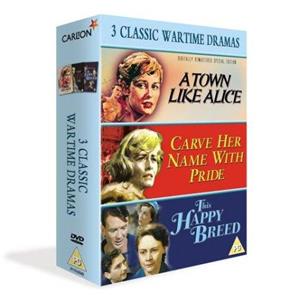
- Original Title :
- This Happy Breed
- Genre :
- TV Episode / Comedy / Drama / Music
- Year :
- 1955–1956
- Directror :
- Noël Coward,Ralph Nelson
- Cast :
- Noël Coward,Norah Howard,Edna Best
- Writer :
- Noël Coward,Noël Coward
- Type :
- TV Episode
- Time :
- 1h 30min
- Rating :
- 7.7/10
Ten years in the life of A London family. Together they must deal with arguments, the ups and downs of romance, an infestation of raccoons and the approach of WW2.
| Episode credited cast: | |||
| Noël Coward | - | Frank Gibbons (as Noel Coward) | |
| Norah Howard | - | Mrs. Flint | |
| Edna Best | - | Ethel Gibbons | |
| Beulah Garrick | - | Aunt Sylvia | |
| Guy S. Paull | - | Bob Mitchell | |
| Robert Chapman | - | Reg Gibbons | |
| Patricia Cutts | - | Queenie Gibbons | |
| Joyce Ash | - | Vi Gibbons | |
| Rhod Walker | - | Sam Ledbitter (as Rhoderick Walker) | |
| Sally Pierce | - | Phyllis Blake | |
| Vera Marshall | - | Edie (as Very Marshall) | |
| Roger Moore | - | Billy Mitchell | |
| Rest of cast listed alphabetically: | |||
| Anthony Franciosa | |||
| Kate Harrington | |||
| Margaret Hill |
Upon completion (January, 1956) of Noël Coward's second CBS TV Ford Star Jubilee appearance in "Blithe Spirit". Noël narrowed down prospective plays considered for his third CBS special. In Jamaica, Noël sprang at his play "Present Laughter" cutting the script down for TV, planning for camera shots, angles and close-ups from the very beginning. Bill Paley was anxious for Noël not to do "Present Laughter", instead proposing Coward's 1942 London success "This Happy Breed". The play, written in 1939 but, because of the outbreak of World War II, it was not staged until 1942, when it was performed on alternating nights with Coward's play, "Present Laughter." The two plays later alternated with Coward's "Blithe Spirit." The title, a reference to the English people, is a phrase from John of Gaunt's monologue in Act II, Scene 1 of William Shakespeare's Richard II. "This Happy Breed" had been made into a very successful 1944 British feature film directed by David Lean. In early March, Ford Motor Company announced in the press without warning that Noel's third television appearance was canceled because the ratings on "Together with Music" and "Blithe Spirit" had not been high enough. Noel flew to New York on Tuesday (13 March 1956) arriving at 9:45 p.m. in snow. Meeting Bill Paley Wednesday morning (14 March) at eleven o'clock, Noël's only policy was stately reticence and outraged dignity. Bill Paley received Noël, and his agents "Russel and Ham" with twitching apprehension! A CBS TV press release announcing Noël Coward's next CBS TV appearance had been postponed until October, when Noël would launch the new "CBS Playhouse 90" series with Noël starring in his play "This Happy Breed". Ford Motor and J. Walter Thompson Advertising Agency had made their announcement to the press without consulting CBS obviously to humiliate Noël as publicly as possibly. Unfortunately, they had not taken into account the fact that Noël Coward's previous CBS TV appearances had been triumphant successes, ratings or no ratings. The reason for Ford's rage was the result of Noël ridiculing them in the Hollywood Press interviews for trying to censor some of his risqué lyrics in "Together with Music" and also certain specific risqué dialogue lines in "Blithe Spirit; TV audiences in the Mid-West were considered eminently shock-able and likely to alleviate their outrage by refusing to buy Ford cars. Bill Paley declared Ford's press release about ratings for Noël Coward's television special ratings being inadequate was false and untrue. By the end of March, all was changed around again from Ford's high eminence - Noël was now to do "This Happy Breed" on Saturday, 5 May, per the original network contract. Added to their discomfiture, Ford Motor realized that they had nothing prepared for the 5 May broadcast schedule and that they were up shit creek without a paddle. Noël's first instinct was to refuse haughtily. Bill Paley urged Noël with pulsating sincerity to do the damned thing on 5 May.
Remaining in New York City, Noél, over-riding CBS and Ford, determined not to return to Hollywood's CBS Television City facility. This caused a tremendous sensation in television circles with Noél suspected of having sinister powers! Noél began editing the script for television, planning camera shots, angles and close-ups, as he had prepared "Present Laughter"; casting, in production meetings, directing and rehearsing the television play "This Happy Breed" with the NYC-CBS assigned TV-facility booth director Ralph Nelson (1916-1987, age 71). Casting stage actress Edna Best as Ethel in-spite of her being dreadfully ill with a mental breakdown for months, her doctors swearing she will be all right for the television appearance and that it would be therapeutically the best thing in the world for her. A hectic terrific hoo-ha as to whether Kay Kendall should play Queenie. Kendall was arriving in New York City to secretly live-in-sin with Rex Harrison, which was madness from her point of view. Noél managed to get Rex to agree to her playing the role and "then the silly bitch refused", so Noél engaged Patricia Cutts. Rehearsals began Monday, 16 April 1956, Everyone was word perfect in rehearsals with a week to go! Noél was playing his role better than he performed originally, probably because he was older, knew more, seeming to feel right as Frank Gibbons the moment he enters the first scene. Edna Best giving an exquisite performance as Ethel, true, uncompromising and infinitely touching. Noél noting she is a fine actress and no trouble at all. When Noél reflected back on the bloody hell that Claudette put him through, he could hardly believe his good fortune in having a leading lady who goes through her business calmly and methodically and is concentrated on getting every ounce of reality out of the character rather than fussing about her angles, her clothes, not troubling to learn the words. The Thursday and Friday night camera dress rehearsals, with an invited studio audience at the CBS Studio 72, were kine-scope copied and reviewed the next morning. Noél did a successful "Person to Person" impromptu interview with Ed Murrow from Charles and Ham's apartment on Friday night prior to the Saturday night color special live broadcast on CBS' "Ford Star Jubilee" showcase. Sunday, May 6th, it was all over and, it seems, a much greater triumph than either of the other two television productions. Saturday night, before the credits were over on the screen, CBS had over one thousand telephone calls. Bill Paley called Noél immediately telling him "it was the greatest thing he had ever seen on television,' his voice still husky with emotion. From Hollywood, as always, Marlene Dietrich in an emotional state; also receiving telephone calls from Clifton Webb, the Bogarts, glamorous American stage actress Katherine Cornell and director Guthrie McClintic who had been friends since the early 1920s. New York can be a rat race at the worst of times and, at the best of times, a three-ring circus. The notices of "This Happy Breed" were fabulous. The New York ones soberly enthusiastic and most heart-warming but nothing compared with the raves from Philadelphis, Chicago, Detroit, Los Angels, San Francisco, Denver, Dallas, etc. The general consensus of opinion is that "This Happy Breed" is the finest telecast ever broadcast, with Noél's performance the best of all!! Edna, rightly, shared all honors and the entire cast received good notices and immediate offers for jobs from all over the place. The one discordant note in all of this was that the rating was lower than either of the previous two broadcasts.
